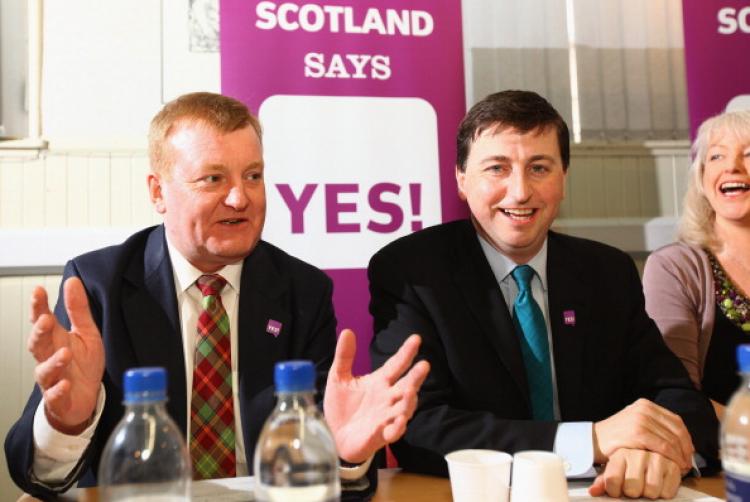ANALYSIS: To AV or not to AV
With the government coalition infighting, Labour split in half, and academics arguing that tactical voting would occur, what exactly will the British public be voting for or against on May 5?

Charles Kennedy Liberal Democrat MP, and Douglas Alexander Labour MP, attend the launch of the fairer votes campaign on April 1, 2011 in Glasgow, Scotland. Activists are campaigning for an alternative to replace the first past the post voting system in the referendum on May the 5th, the same day as the Scottish Election. Jeff J Mitchell/Getty Images
|Updated:





